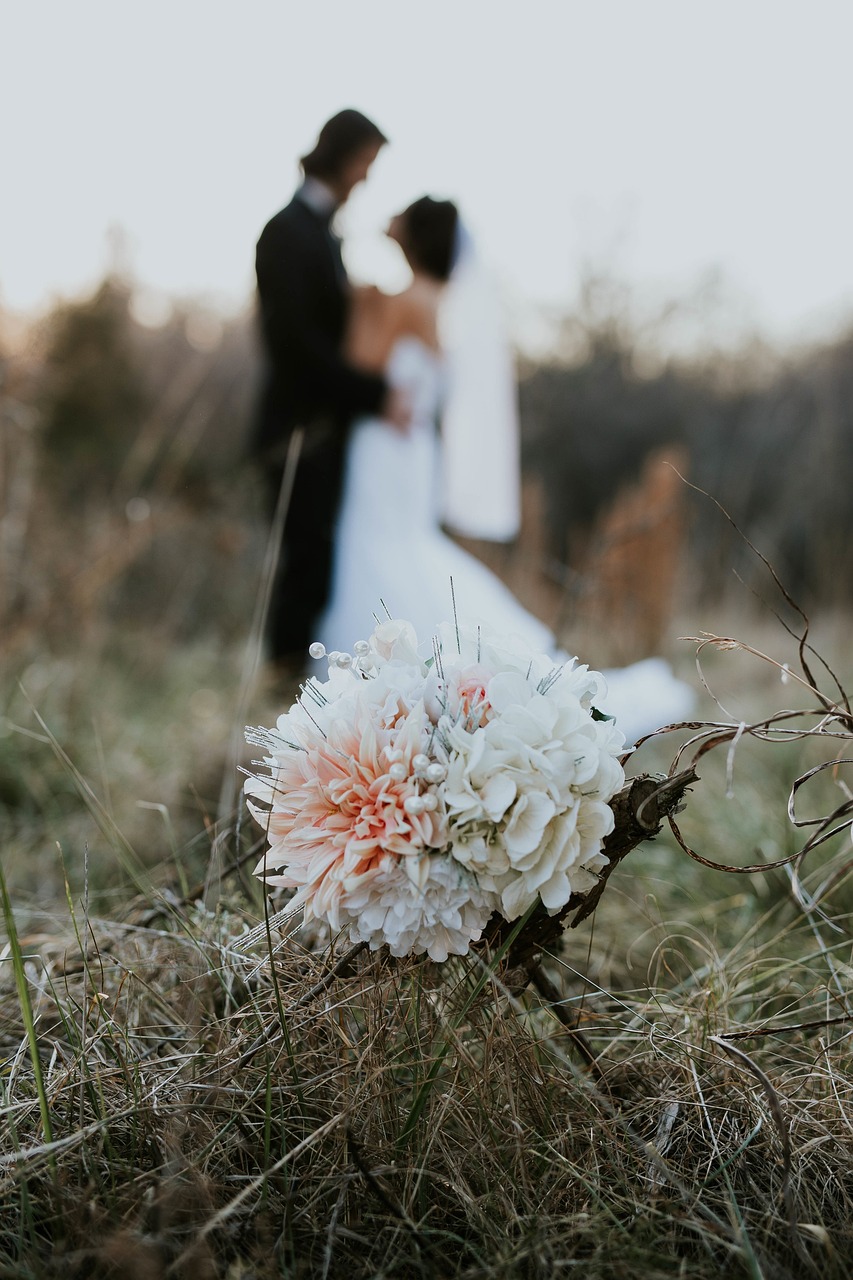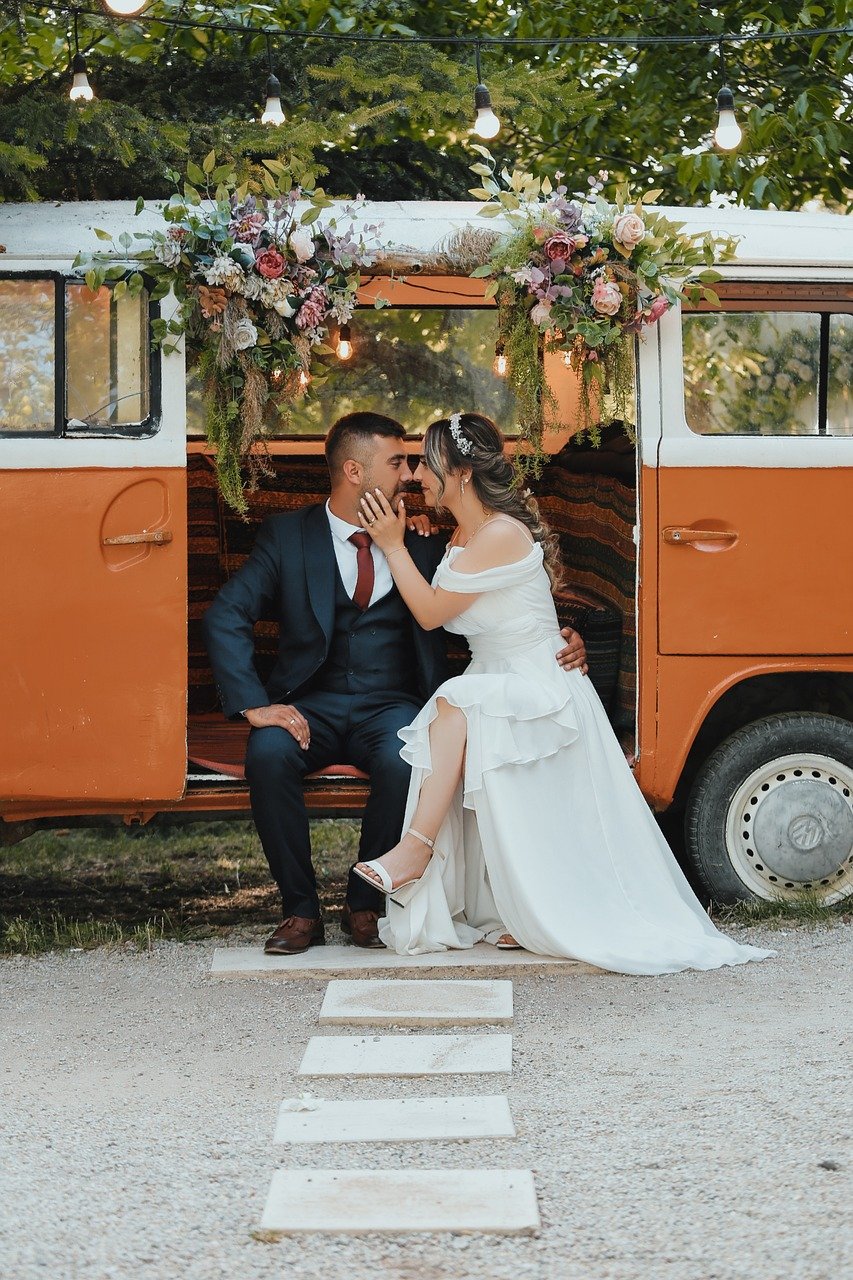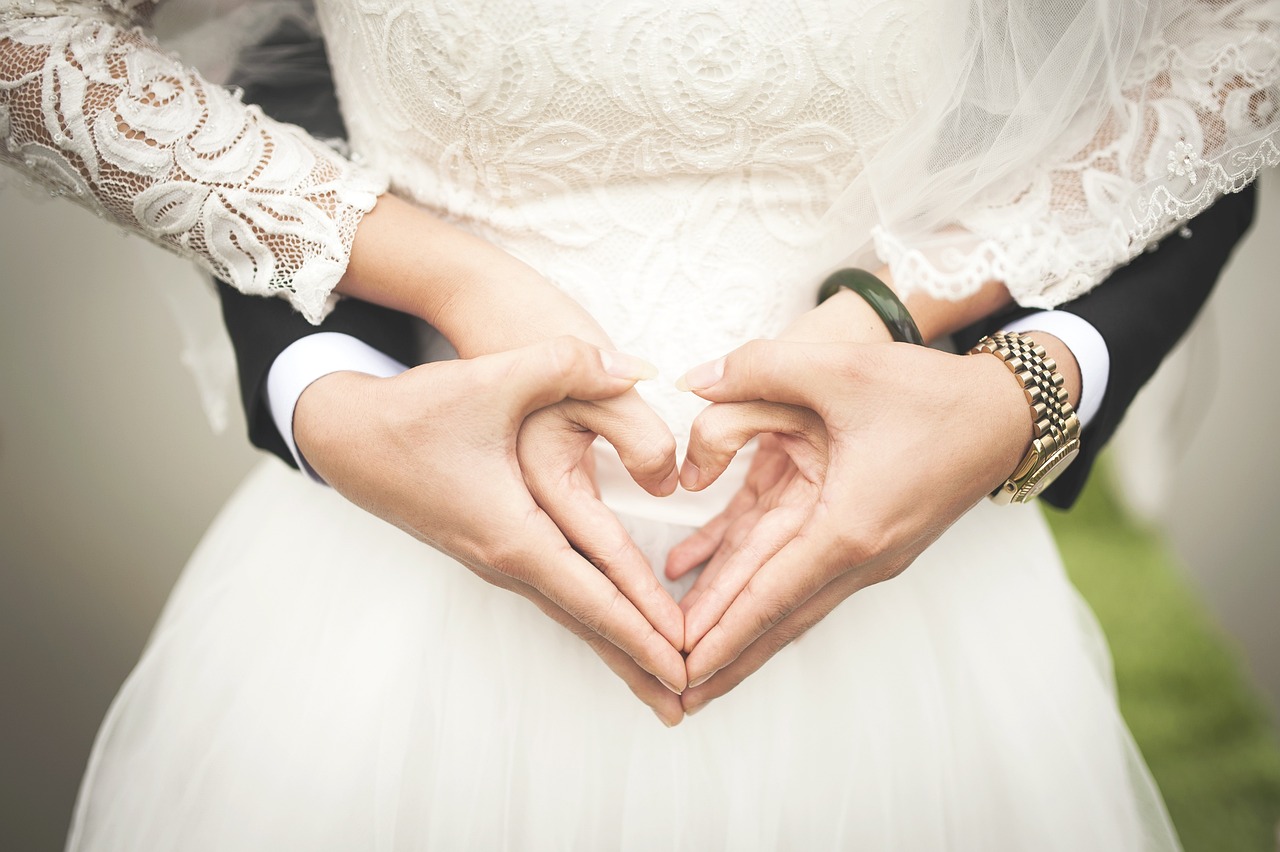Your wedding day is a cherished milestone in your life, and naturally, you want everything to run seamlessly. It’s a day you’ve been dreaming about for years, and you want it to be just perfect. As you delve into the intricate world of wedding planning, two essential questions emerge: do you need a wedding coordinator, and how do you select the perfect venues for your ceremony and reception?
In this comprehensive guide, we’ll help you navigate these critical aspects of your wedding journey. We’ll explore the pros and cons of hiring a wedding coordinator, providing you with insights that will assist you in making a decision aligned with your unique vision and needs. Simultaneously, we’ll delve into the process of finding the ideal venues for your ceremony and reception. These venues not only shape the aesthetic and ambiance of your celebration but also influence the flow and logistics of your wedding day.
**As an Amazon Associate, I earn from qualifying purchases.** (Any word(s) that are bold and turn green when you hover over them are product links.)

To Coor-Not to Coordinate: Pros and Cons of Hiring a Wedding Coordinator
The Pros of Hiring a Wedding Coordinator
Expertise and Experience:
Wedding coordinators bring a wealth of knowledge and experience to the table. They understand the intricacies of the wedding industry, from vendor selection to timeline management, and can offer valuable guidance. When planning your wedding, it’s easy to feel like a fish out of water in the vast sea of options. Wedding coordinators serve as your navigators, helping you make informed decisions based on their experience.
Time-Saver:
Wedding planning is time-consuming, and a coordinator can help streamline the process. They handle the logistics, allowing you to focus on the creative and personal aspects of your big day. Time is of the essence when it comes to planning a wedding, and a coordinator ensures that it’s spent wisely and efficiently.
Stress Reduction:
Wedding planning can be overwhelming, and a coordinator acts as a buffer between you and potential stressors. They troubleshoot issues, handle last-minute emergencies, and ensure everything runs smoothly. When the inevitable hiccups occur, a wedding coordinator is your reliable problem-solver, ensuring your stress levels are kept in check.
Vendor Connections:
Coordinators often have established relationships with various vendors and can recommend trusted professionals who align with your style and budget. Building these relationships takes years, and coordinators leverage their connections to ensure you get the best deals and services for your wedding.
Customization:
A good coordinator tailors their services to your needs. Whether you require full-service planning, day-of coordination, or something in between, they can adapt to your preferences. Your wedding should be uniquely yours, and a coordinator ensures your vision is brought to life, making your day as special as you’ve always dreamed.
The Cons of Hiring a Wedding Coordinator
Cost:
Hiring a wedding coordinator comes at a price. The fee can vary significantly depending on the level of service you require and your location, which may impact your overall budget. Budget constraints can be a significant concern, and the cost of a coordinator is one of the most significant cons. When you are wedding planning It’s important to carefully consider how this expense aligns with your financial plan.
Loss of Control:
Some couples enjoy being hands-on throughout the planning process. Having a coordinator may mean relinquishing some control over certain decisions. If you’re someone who loves being in the driver’s seat, the idea of handing over the reins to a coordinator may not be appealing.
Personalization:
While coordinators help execute your vision, they may not have the same personal investment in your wedding as you do. This can affect the level of personalization and attention to detail. Your wedding day should reflect your personality and style. If you’re concerned about maintaining a personal touch, this is an important point to consider.
Over-Reliance:
Relying heavily on a coordinator can lead to a sense of detachment from the planning process. It’s essential to strike a balance between delegating tasks and staying involved in the decisions that matter most to you. Striking this balance is key to ensuring that your wedding day still feels like your own creation.
Compatibility:
Finding the right coordinator who understands your vision and personality can be challenging. It’s crucial to work with someone who shares your enthusiasm and communicates effectively. The coordinator’s personality and approach need to align with yours to ensure a harmonious planning process.
Consider a “Day-Of” Coordinator
It’s important to note that you don’t necessarily need to hire a coordinator for the entire wedding planning process. Many couples opt for a “Day-Of” coordinator. This professional steps in on the actual day of your wedding to ensure that everything runs smoothly. Their responsibilities include coordinating vendor arrivals, managing the timeline, overseeing setup and decor, and addressing any unexpected issues.
A “Day-Of” coordinator provides invaluable support on your wedding day, allowing you to relax and savor every moment without worrying about the logistics. This option strikes a balance between DIY planning and full-service coordination, ensuring that your wedding day unfolds seamlessly.
Making the Decision
The choice of whether to hire a wedding coordinator is a significant decision that hinges on several crucial factors. The decision ultimately depends on your preferences, budget, and how much time and energy you’re willing to invest in planning. Consider the complexity of your wedding planning, your organizational skills, and whether you have the time to manage the logistics.
If you’re leaning towards hiring a coordinator, start by researching professionals in your area, checking references, and thoroughly discussing your expectations. If you decide to plan without one, stay organized, seek advice from friends and family, and consider a day-of coordinator to help execute your plans smoothly.
Ultimately, whether you choose to have a wedding coordinator or not, the goal is to create a memorable and joyous celebration that reflects your love story. Weigh the pros and cons and make a decision that allows you to enjoy your wedding day to the fullest. Your wedding day is a once-in-a-lifetime event, and the decision to have a coordinator, in any capacity, should align with your vision and make your journey to the altar as smooth and enjoyable as possible.

Finding Your Dream Wedding Venue: Ceremony and Reception Choices
Your wedding venue choices are among the most impactful decisions you’ll make during your wedding planning journey. Not only do they shape the aesthetic and ambiance of your celebration, but they also play a pivotal role in determining the flow and logistics of your wedding day. In this chapter, we’ll guide you through the process of finding the perfect venues for your ceremony and reception. We’ll also explore the decision of whether to host both events at the same location or separate venues, taking into account crucial factors like your wedding day timeline, preferred ceremony setting, photography considerations, and more.
Ceremony and Reception: Same Location or Separate?
One of the first decisions you’ll face, when wedding planning, is selecting your venues. You will need to make the decision whether to hold both your wedding ceremony and reception at the same place or choose separate locations. This choice depends on various factors that deserve careful consideration.
Same Location:
Hosting both your ceremony and reception at the same venue offers convenience for both you and your guests. It eliminates the need for transportation between locations, saving time and reducing logistical complexities. This option often allows for seamless transitions between the ceremony, cocktail hour, and reception, keeping the momentum of your celebration flowing smoothly.
However, when opting for the same location, consider the setup time needed for the venue to transition from ceremony to reception mode. Additionally, think about the availability of suitable spaces for each segment of your wedding, especially if you envision an outdoor ceremony in a garden or a picturesque backdrop.
Separate Locations:
Selecting separate ceremony and reception venues allows you the freedom to choose distinctive settings for each part of your celebration. This can be especially appealing if you have a specific vision for your ceremony, such as a church, garden, or beach ceremony. Separate locations also offer flexibility in scheduling your photography sessions, as you can choose to have your pictures taken before or after the ceremony, depending on your preferences and the available time in between.
However, when considering separate venues, take into account the logistics of transporting your guests from one location to another. Ensure you plan for travel time and provide clear directions to minimize any confusion. Additionally, coordinate with your vendors to ensure a smooth transition between venues.
Ultimately, the choice between the same or separate locations hinges on your unique vision for your wedding day, your logistical preferences, and the overall atmosphere you want to create. As you explore potential venues, keep these factors in mind, and remember that your decision should align with your wedding planning vision and how you envision the flow of your special day.
Finding the Perfect Venue – Tips on selecting the ideal ceremony and reception venues.
Choosing the right venues is a multifaceted process, influenced by various factors such as style, budget, and availability. Here are some key considerations to help you make this critical decision:
Style and Theme:
Consider the style and theme of your wedding. Does it align with a rustic barn, a grand ballroom, a charming garden, or a beachside setting? Your venue should harmonize with the overall vision you’ve crafted for your big day.
Guest Count:
Determining your guest list size is a crucial step in wedding planning. The venue should comfortably accommodate your attendees, whether you’re planning an intimate gathering or a grand celebration.
Budget:
Evaluate the cost of the venue, including any additional fees for services and amenities. Be transparent with the venue owners about your budget to ensure there are no surprises later on.
Location:
The location of your venue matters not only for convenience but also for the ambiance it provides. Consider whether you want a local celebration or a destination wedding and how accessible the venue is for your guests.
Availability:
Popular venues can book up quickly, so it’s crucial to secure your date early. Flexibility with your wedding date can open up more options for venue selection.
Questions to Ask Venue Owners
When you’re visiting potential venues, it’s essential to gather all the information you need to make an informed decision. Here is a list of questions to ask venue owners during your tours:
1. Is the venue available on our preferred wedding date? If not, what alternative dates are available?
2. What is the rental cost, and what does it include (e.g., tables, chairs, linens, parking, etc.)? Are there any additional fees we should be aware of?
3. What is the venue’s capacity, and how many guests can it comfortably accommodate?
4. Do you have any restrictions or requirements for vendors, or can we bring in our preferred vendors (e.g., catering, florist, photographer)?
5. What is the backup plan in case of inclement weather for an outdoor venue?
6. Are there any noise restrictions or curfews in place that we need to be aware of?
7. Can we view the venue during the time of day when our wedding will take place to assess lighting and ambiance?
8. Is there a bridal suite or dressing area available for the wedding party?
9. What is the venue’s cancellation policy and refund policy in case of unforeseen circumstances?
10. Do you provide on-site event coordination or have recommendations for wedding planners or day-of coordinators?
These questions will not only help you gather essential information but also give you a sense of how accommodating and professional the venue staff is. Take thorough notes during your visits to help you make an informed choice.
Selecting your ceremony and reception venues is a significant step in shaping your wedding day. Whether you’re envisioning a romantic garden ceremony or a glamorous ballroom reception, the right venues will set the stage for memories that will last a lifetime. It’s a decision that requires careful thought, but with the right considerations and questions, you can find the perfect venues to make your wedding dreams come true.

Crafting Your Perfect Wedding Experience Through Wedding Planning
Your wedding day is a one-of-a-kind celebration, and you want it to be everything you’ve ever dreamed of. The decision of whether to hire a wedding coordinator and how to select your ceremony and reception venues are pivotal in shaping your special day.
As you embark on this journey, remember to weigh the pros and cons of hiring a wedding coordinator. These professionals offer invaluable expertise, time-saving assistance, and the means to reduce stress. However, it’s crucial to consider the cost, potential loss of control, and the balance between delegation and personal involvement.
When it comes to venue selection, your choices have a profound impact on your wedding’s atmosphere. Whether you opt for the same location for both ceremony and reception or choose separate venues, consider your wedding day timeline, ceremony setting, and photography needs. Your decision should align with your vision, logistical preferences, and the overall atmosphere you want to create.
Your wedding day is a canvas waiting to be painted with beautiful moments, and the right wedding coordinator and venue selection will help you create a masterpiece. So, take your time, explore your options, ask the right questions, and make decisions that reflect your unique love story. In the end, wedding planning is all about crafting the perfect celebration that leaves you with cherished memories and a heart full of love.
*** Looking for Save-the-Dates, Wedding Invitations and more…Check out Pioneer Printers, Inc. for all your printed wedding materials. Website: www.pioneerprinters.com or click HERE to go directly to their website!
Head to the BLOGS page to read more about planning, decluttering and organizing.
Wedding Planning: Wedding Coordinator and Venue Selection
Subscribe to updates and our newsletter!
Contact Us
contact@neatandcozyhouse.com
By submitting your email address, you hereby consent to receive weekly post emails and monthly newsletters from The Neat and Cozy House. We will use your email address solely for the purpose of sending you these updates, and we assure you that your information will be kept confidential.
You have the right to unsubscribe at any time by clicking the “Unsubscribe” link in the footer of our emails. Your decision to unsubscribe will take effect immediately, and you will no longer receive our weekly post emails and monthly newsletters.
We value and respect your privacy. For more information on how we handle your data, please refer to our Privacy Policy.
Thank you for subscribing!

